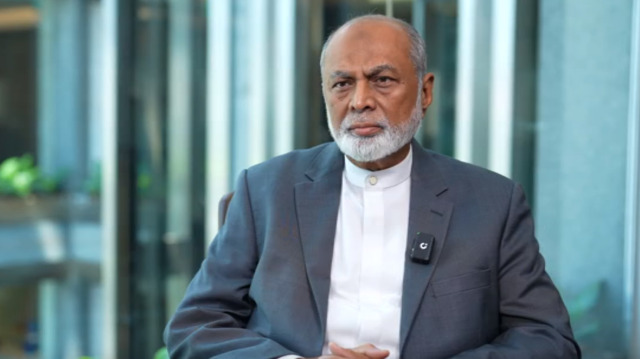
Human rights activist Abdul Malik Mujahid highlights the plight of Muslim minorities in India, citing violence, discrimination, and cultural suppression.
In a recent interview with Yeni Safak, Abdul Malik Mujahid, the leader of the "Justice for All" organization based in Chicago, shed light on the pressing challenges faced by Muslim minorities in India. Drawing attention to a range of issues, Mujahid underscored the need for global awareness and intervention to address the oppression faced by Muslims within the country.
Mujahid's remarks centered on the discrimination and hardships experienced by Muslims in India, particularly focusing on instances of violence, biased policies, and cultural suppression. The interview highlighted concerns over the unequal treatment of Muslims in India's justice system, with Mujahid citing incidents of lynching and violence against the community. He emphasized that these acts of violence are exacerbated by a lack of accountability for those promoting hate speech and discriminatory policies.

One of the key points of contention raised by Mujahid was the diminishing number of mosques available for Muslims to pray, accompanied by the seizure and destruction of religious sites. He discussed the Babri Masjid and Ram Temple controversy, stressing that it symbolizes the suppression of Muslim identity and religious rights. Mujahid expressed deep alarm at the growing anti-Muslim sentiment in India, which he attributed to various campaigns that perpetuate stereotypes and prejudices.
Mujahid also criticized discriminatory policies, including biased education systems and citizenship laws that disproportionately affect Muslims. He highlighted the challenges Muslims face in proving their citizenship due to a lack of documentation, asserting that these policies are rooted in Islamophobia and contribute to marginalization.

Furthermore, the interview addressed concerns about the Indian government's suppression of information through restrictions on human rights organizations. Mujahid argued that government efforts to promote cultural practices and historical sites were attempts to divert attention from ongoing atrocities against Muslims.
Mujahid went on to add that the Indian government manipulates the mediascape in the country amid a surge in baseless anti-Muslim stories that go viral on social media. "[The] Indian government actually says we have [the] power to make any news go viral whether it’s fake news or [not]," continued Mujahid.
The interview concluded with Mujahid's call for increased global awareness and intervention to address the challenges faced by Muslim minorities in India. He stressed the importance of confronting distorted historical narratives and urged the international community to stand against oppression and discrimination.


